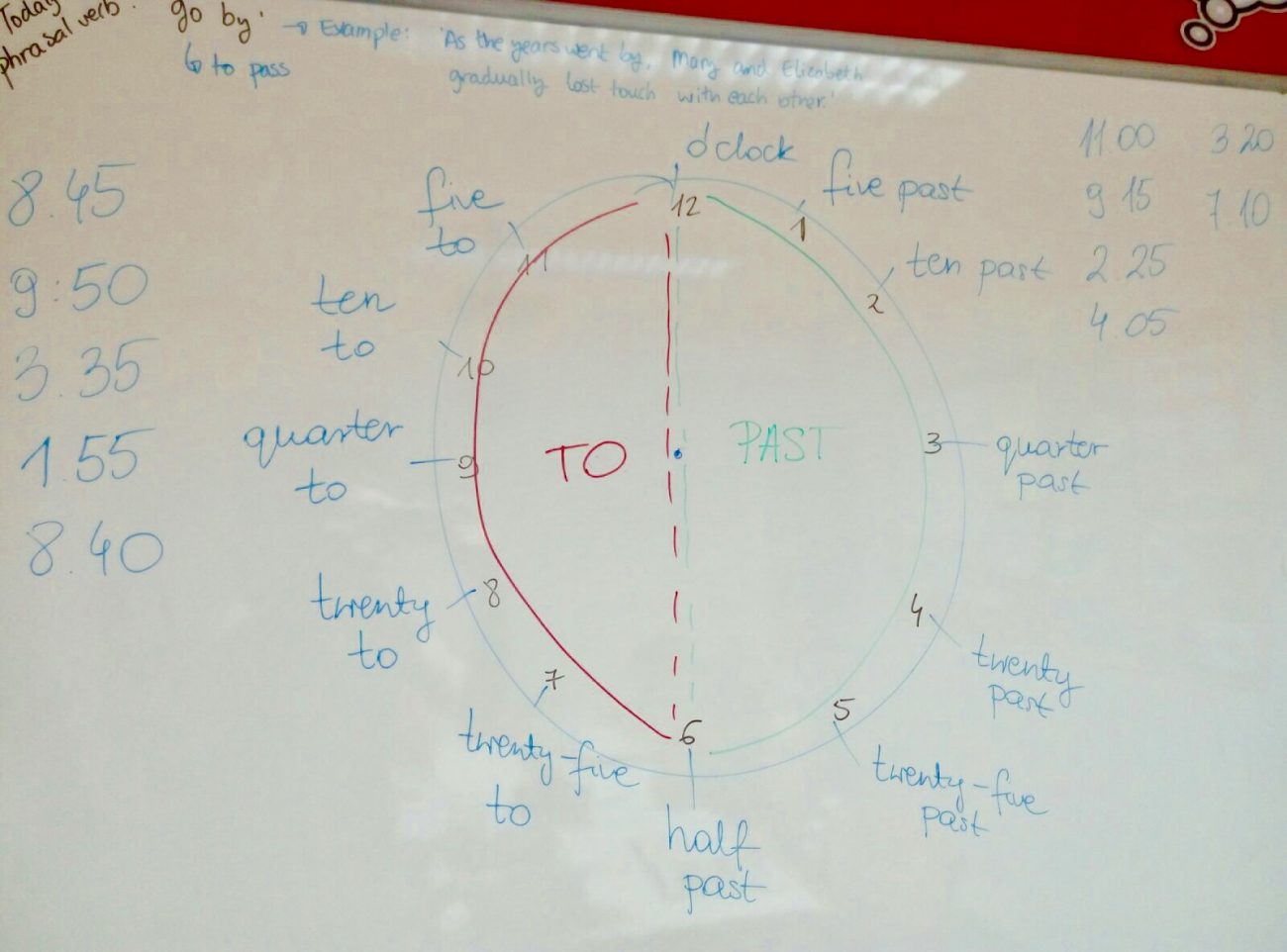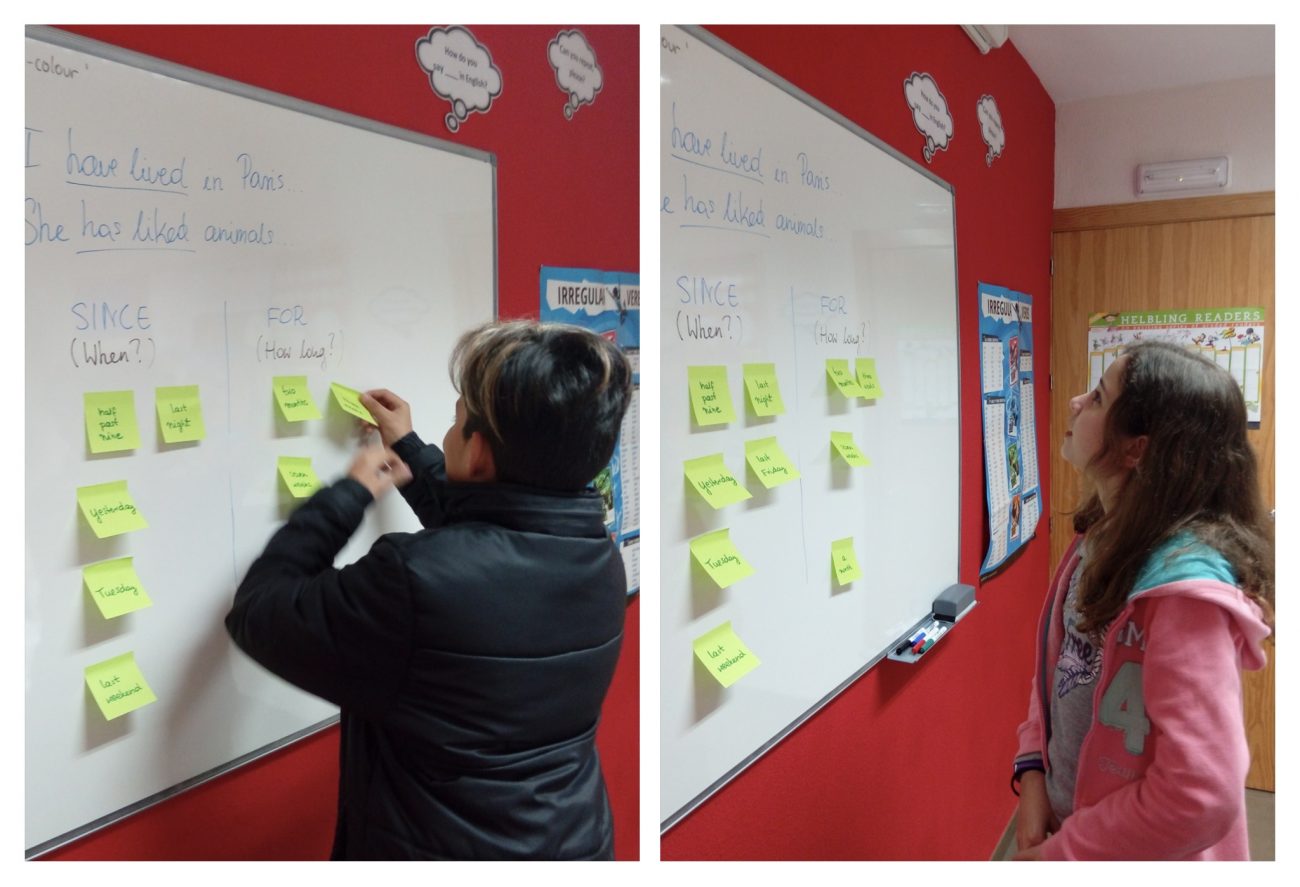How to teach kids telling the time in a fun way? Playing a game of course!

Si te has unido a un curso de inglés pero no tienes suficiente tiempo para practicar, si siempre te ha gustado el inglés y quieres repasar antes de incorporarte al curso adecuado o simplemente si lo disfrutas y quieres que sea parte de tu rutina diaria, aquí tenemos algunos consejos para incluir el inglés … Leer más
DESDE LONDRES CON AMOR: practicando writing parte 2 de PET Esta semana practicamos el writing parte 2 de PET con uno de nuestros grupos de B1 de adolescentes. Decidimos romper con la rutina diaria de usar el libro de texto y hacerlo algo más interesante y motivador. Siempre intentamos hacer que los estudiantes aprendan en … Leer más
How to teach kids telling the time in a fun way? Playing a game of course!



Hello everyone!
Recently our Teens 3 group has been studying a fascinating topic; it is about travel and holidays – who doesn’t like travelling? In this lesson they have learnt common words and phrases connected with travel and transport. I love dealing with activities that capture and hold teens’ interest. Of course, the aim is to inspire and engage the students and activate learning across all four skills.
Many times in our lives we don’t have a choice. Choices are crucial in a variety of situations in life, and it is our right and responsibility to make them, as I say, whenever we can.
Over the last four months I have come to make quite a lot of decisions and I have forced other people to make them as well. If I had had a choice, I would have tried to escape this responsibility but I didn’t. That is precisely my point here today.
Reading is one of the skills assessed in the Cambridge examinations, which many of our students will take soon. Too often, we find learners who are not used to reading even in their mother tongue, so it’s an added difficulty. Basically, we must improve our reading by reading. Here are some tips which will help you:

Today’s post is the result of the last FECEI Conference in Madrid, which we participated in at the beginning of February. I was inspired by one of the speakers whose presentation focused on vocabulary learning. I have always asked myself how my students can practise the vocabulary given in class in an active, fun and efficient way. I seriously doubt whether they dedicate enough time at home to learn new words by heart, especially my students in higher levels. When all is said and done in class how can I make them work on enhancing their vocabulary?

Some weeks ago I was in class with my B1 students working on ‘clothing vocabulary’ and I wondered how I could manage to make them use specific terms and get some fluency when speaking about that topic. Having knowledge of vocabulary related to clothes is really necessary in their PET exam at the end of the course, and also in the future when they travel abroad and go shopping for clothes. Definitely, we are killing two birds with one stone – acquiring tools to pass the exam and also developing their speaking skills for real life.
I didn’t know I wanted to become a teacher until the day I realised that by being a teacher I could make a difference in the world around me. What I have always known is that everything I got involved in, I needed to do my best. Thus, I soon understood I really desired to be not just a simple teacher, but a good one – one of those you never forget, one of those who manage to transmit values and make their students enjoy learning.